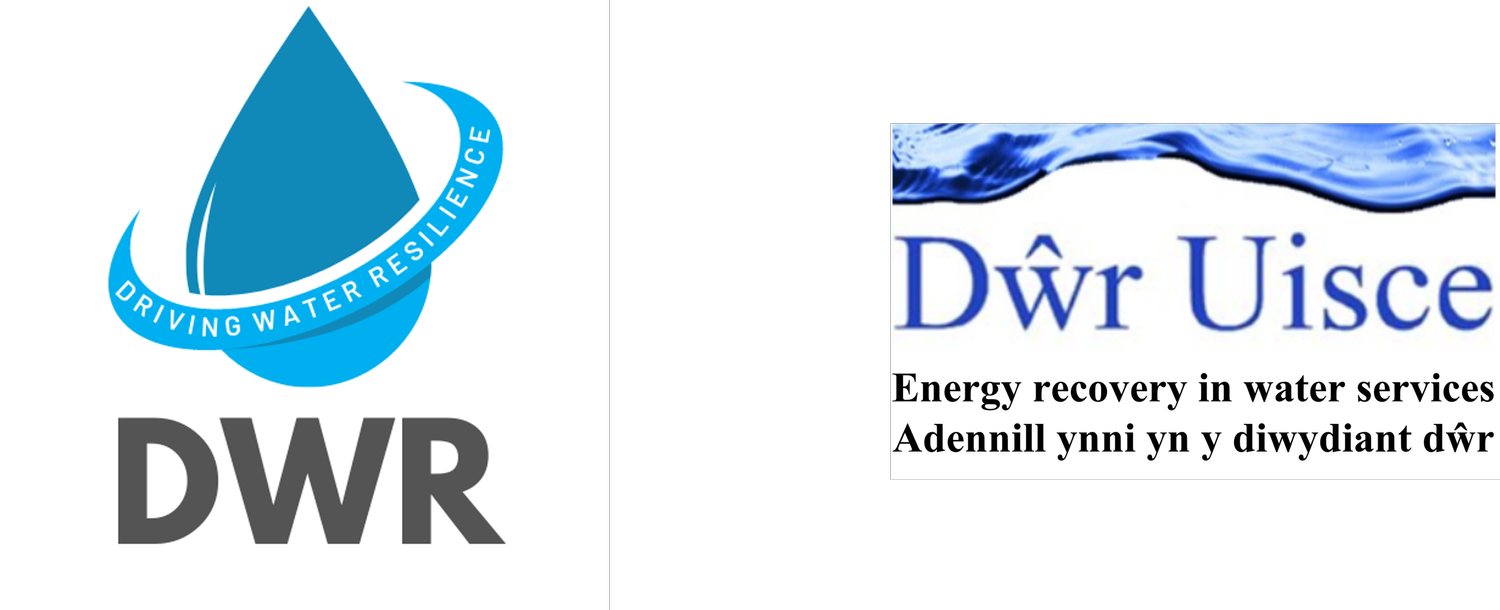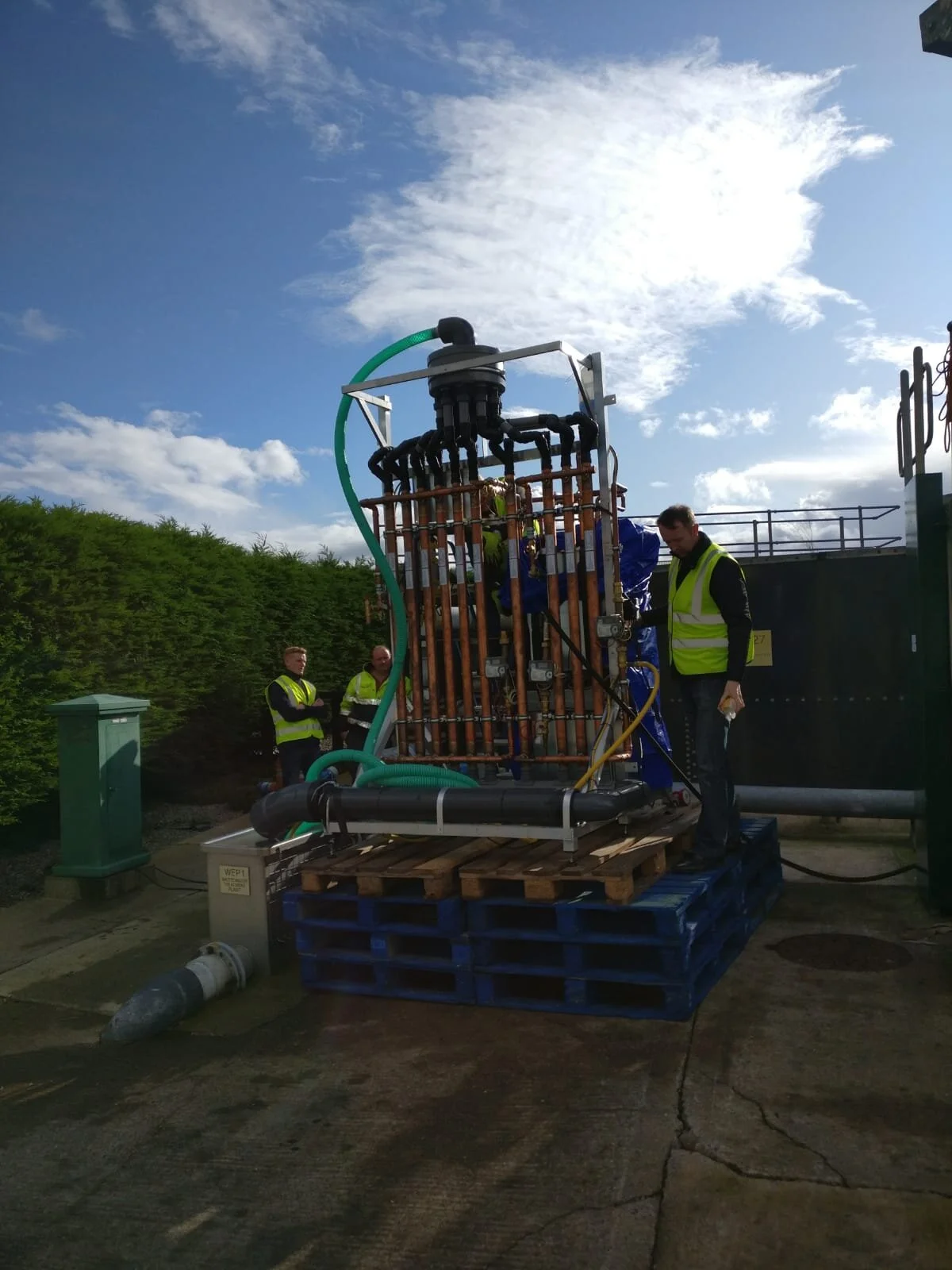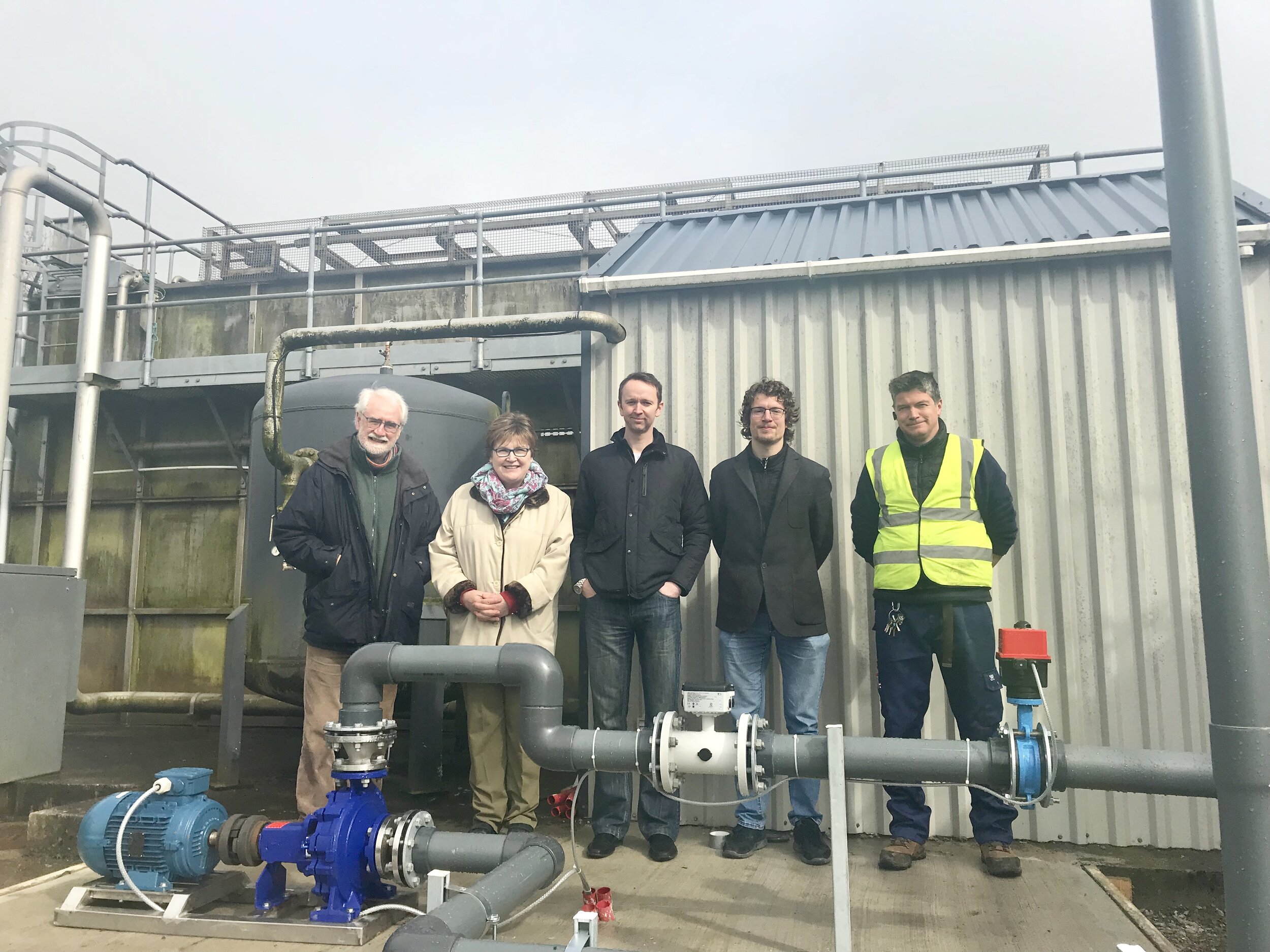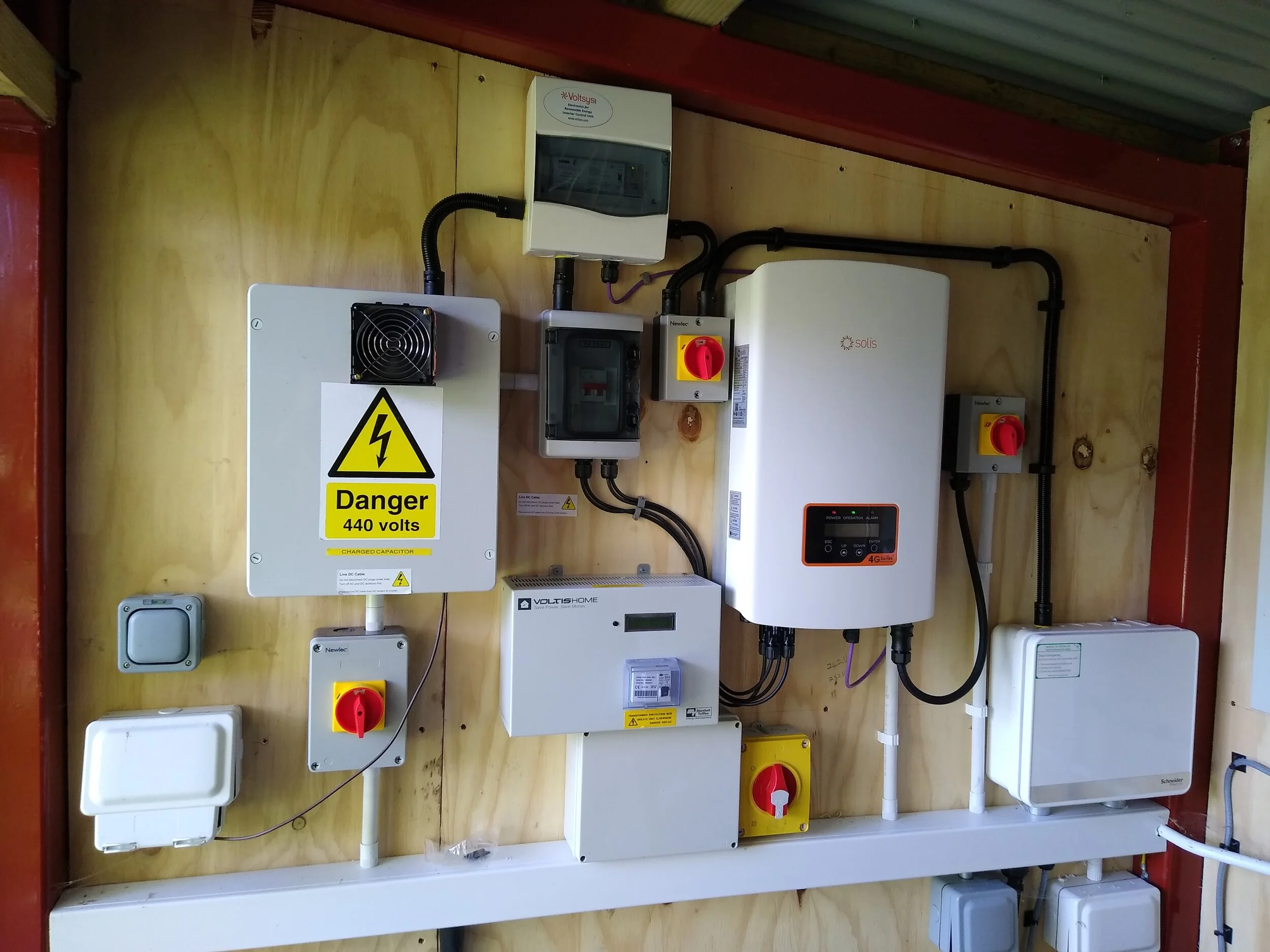The front view of Waste Water Heat Recovery system
The back view of Waste Water Heat Recovery system
A collaboration between the Dŵr Uisce project and ABP Food has been established which has started in early 2018. In this context the industrial process at ABP demonstration site offers a unique opportunity to investigate the potential of waste water heat recovery technology in the food processing sector. This technology can help towards improving environmental, energetic and financial performance of the facilities. The system aims to subtract the heat from wastewater and can be set up at different locations in the wastewater stream. When the recovered heat is plugged back into the hot water provision, this leads to a potential energy saving of up to 80 MWh per year, when installed on the effluent of the wastewater treatment works, its current location. This results in a reduction of carbon emissions of up to 12 tons per year
The system consists of different types of heat recovery, including preheating of the incoming feed water, but also delivering hot water at 45°C using a wastewater source heat pump. The system is capable of switching between both operating modes, and of applying bot at the same time, depending on the local conditions. Now, the heat recovery system has been installed on the premises at ABP food group in Cahir. The technology can be employed to recover energy from wastewater generated in the meat processing.



















